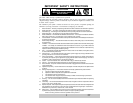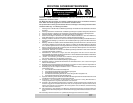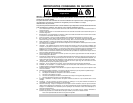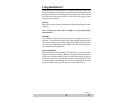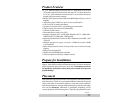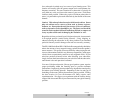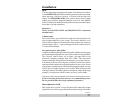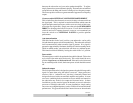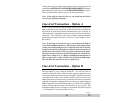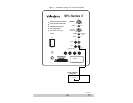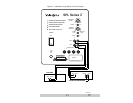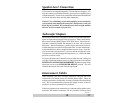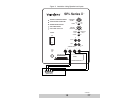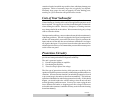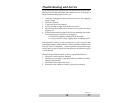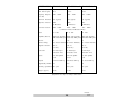
continued. . .
9
☞
is being fed a low pass signal from another crossover, simply locate the
switch marked INTERNAL X-OVER/SUBWOOFER DIRECT on the rear
panel of the subwoofer and set to the SUBWOOFER DIRECT position.
This will eliminate the internal crossover from the signal path.
Note: If not using an external crossover, you should use the built-in
crossover for optimal performance.
Line-level Connection - Option A
Figure 1 shows connection from your home theater receiver to the LFE
input on the back of your subwoofer. When the subwoofer is installed in
this fashion, all of the low frequency information from your "LFE Out" or
"Subwoofer Out" on the back of your receiver will pass into your Velodyne
subwoofer. This connection is the most common connection method
when using your subwoofer with a 5.1 receiver. (Cable needed: 1 mono
RCA cable.)
Note: If not using an external crossover, you should use the built-in
crossover for optimal performance. When using a single channel input
(such as a surround sound processor's subwoofer out or LFE), the auto
on/off circuit sensitivity will be affected. When one input channel is used
instead of two, the unit will see lower signal levels present at the inputs.
This may cause the unit to turn off when listening at low volume levels.
If this occurs, simply use a "Y" adapter (available from most dealers) to
allow your processor's single sub line to be fed into both L&R inputs.
This will make the unit turn on at lower signal levels.
Line-level Connection - Option B
Figure 2 shows connection from a pre-amplifier's main outputs to the left
and right inputs of your Velodyne subwoofer. You will also need to
connect a second pair of RCA cables from the outputs on the back of your
subwoofer to the inputs on the back of your amplifier. When the subwoofer
is installed in this fashion, your satellite speakers will be crossed over at
80Hz which removes the lower bass from frequencies from your external
amplifier and speakers, enabling them to do a better job reproducing the
higher frequencies. By utilizing this method, you will have a bi-amplified
system, gaining improved power and headroom for your system. This
installation method is not as common as the method described in Figure
1. (Cable needed: 2 stereo pair of RCA cables.)



